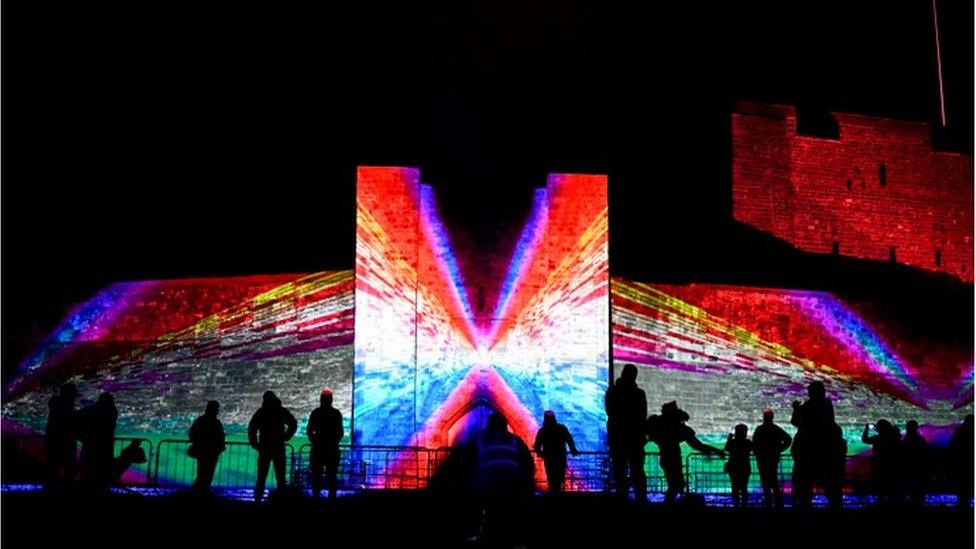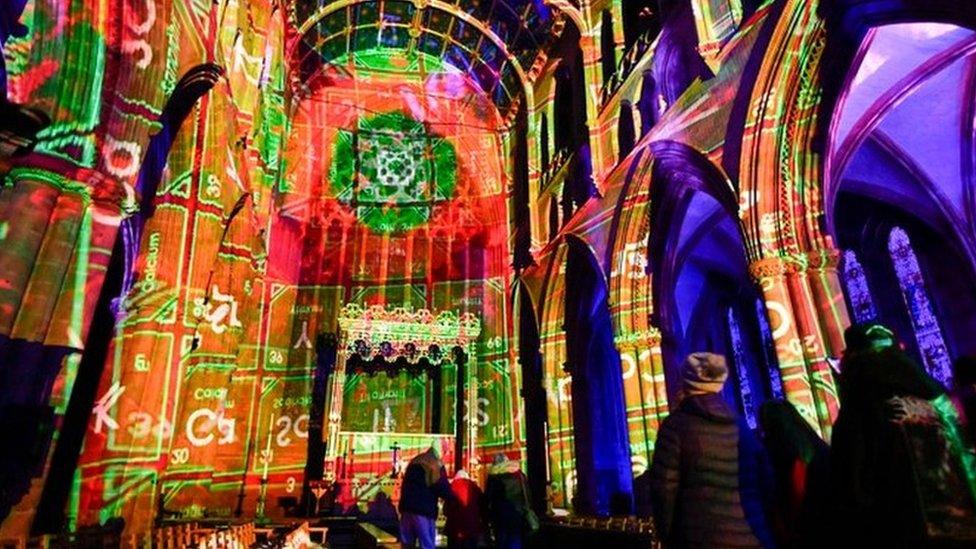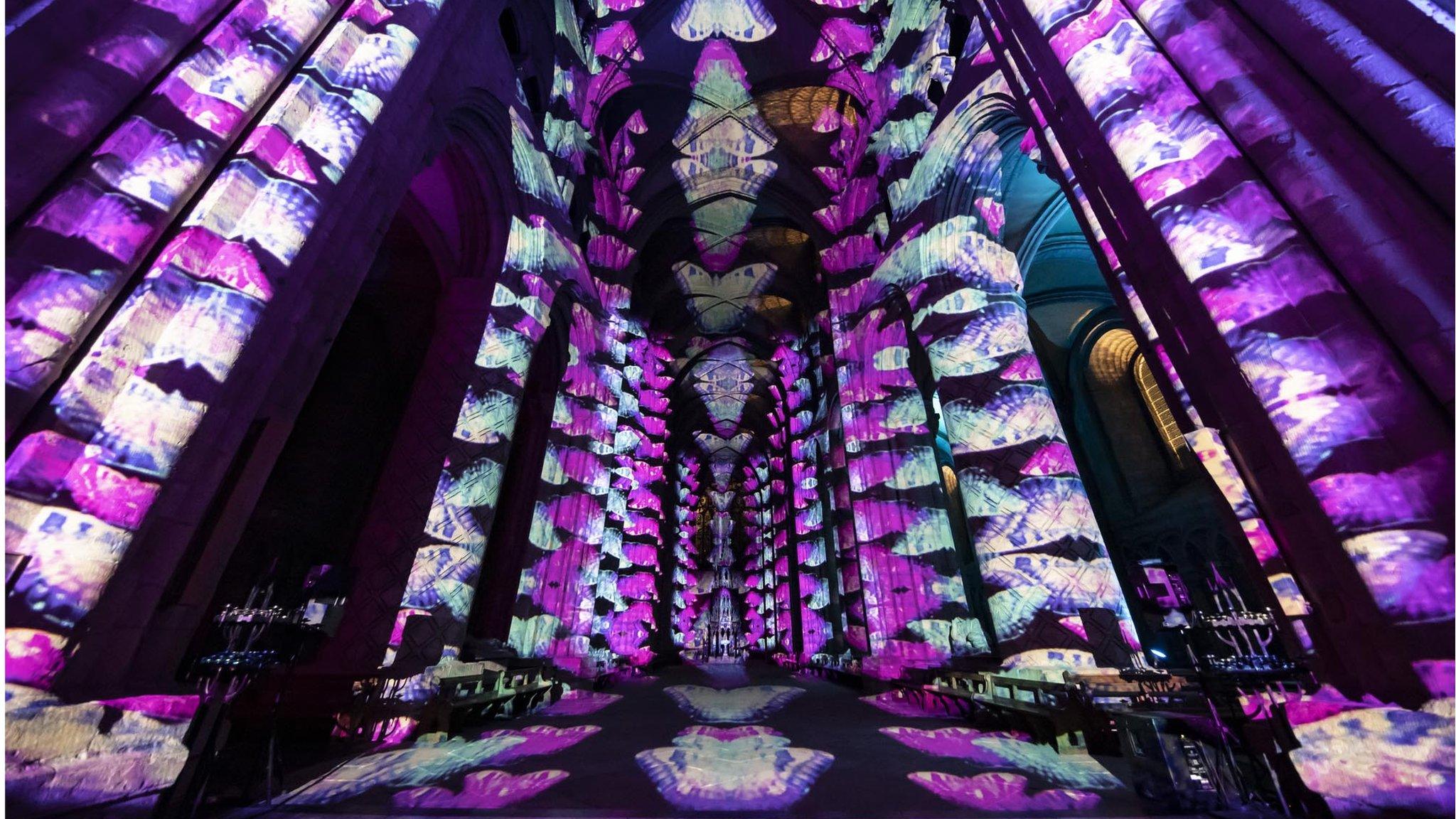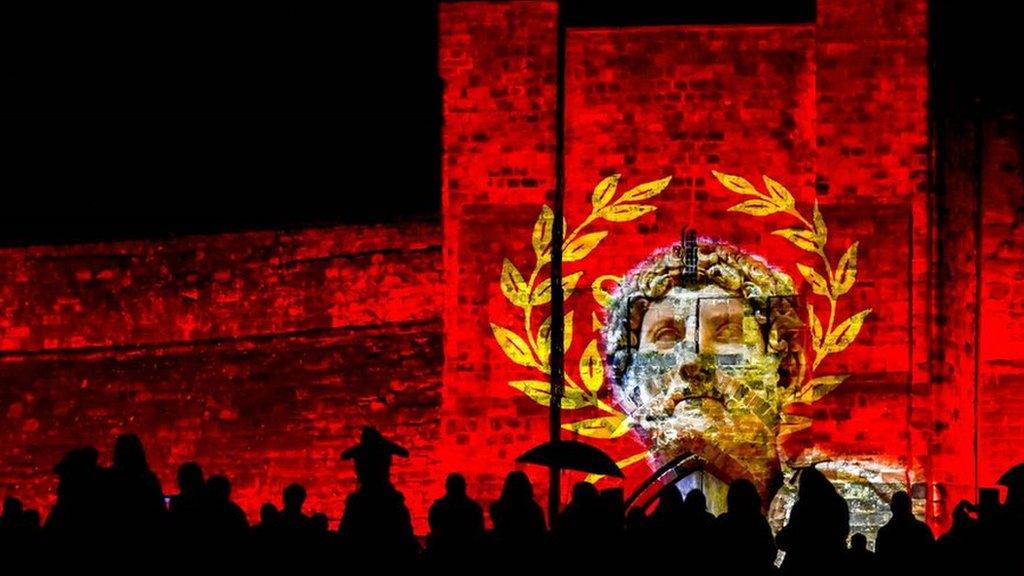Carlisle's light festival explores the power of science
- Published

Colourful projections change the exterior of Carlisle Castle
A sound and light show has bathed Carlisle's landmarks in colour.
The 2023 City of Lights theme is "Science" and features interpretations of molecules, cells and DNA.
Organisers want people to think about the contribution science and scientists as they watch the evolving projections.
The show has been organised by the Discover Carlisle team at Carlisle City Council, Cumbria County Council and Luxmuralis which staged an event in Durham Cathedral in October.
Last year a similar event championed Carlisle's Roman heritage as part of the year-long festival to mark the 1,900th anniversary of Hadrian's Wall.

Carlisle Castle bathed in red lights with laser beams projecting behind it
Peter Walker from Luxmuralis said: "The artwork is designed to enable people to explore and contemplate the contributions of science and human understanding of the physical world around us.
"It explores chemistry and biology as well as the history of science, the contributions of science to humanity and offers a reflection upon famous scientists past and present."

The show sees scientific symbols projected in multi colours across the city's historic landmarks
The show starts at Carlisle Cathedral, with the audience next directed to the grounds of Tullie House before ending at Carlisle Castle with sound and light projected on to buildings.
City councillor Stephen Higgs, portfolio holder for culture, heritage and leisure said the authority had "worked hard" to make this year's show "bigger and better" and it was proving to be a success.

Follow BBC North East & Cumbria on Twitter, external, Facebook, external and Instagram, external. Send your story ideas to northeastandcumbria@bbc.co.uk, external.
- Published13 October 2022

- Published22 October 2022
